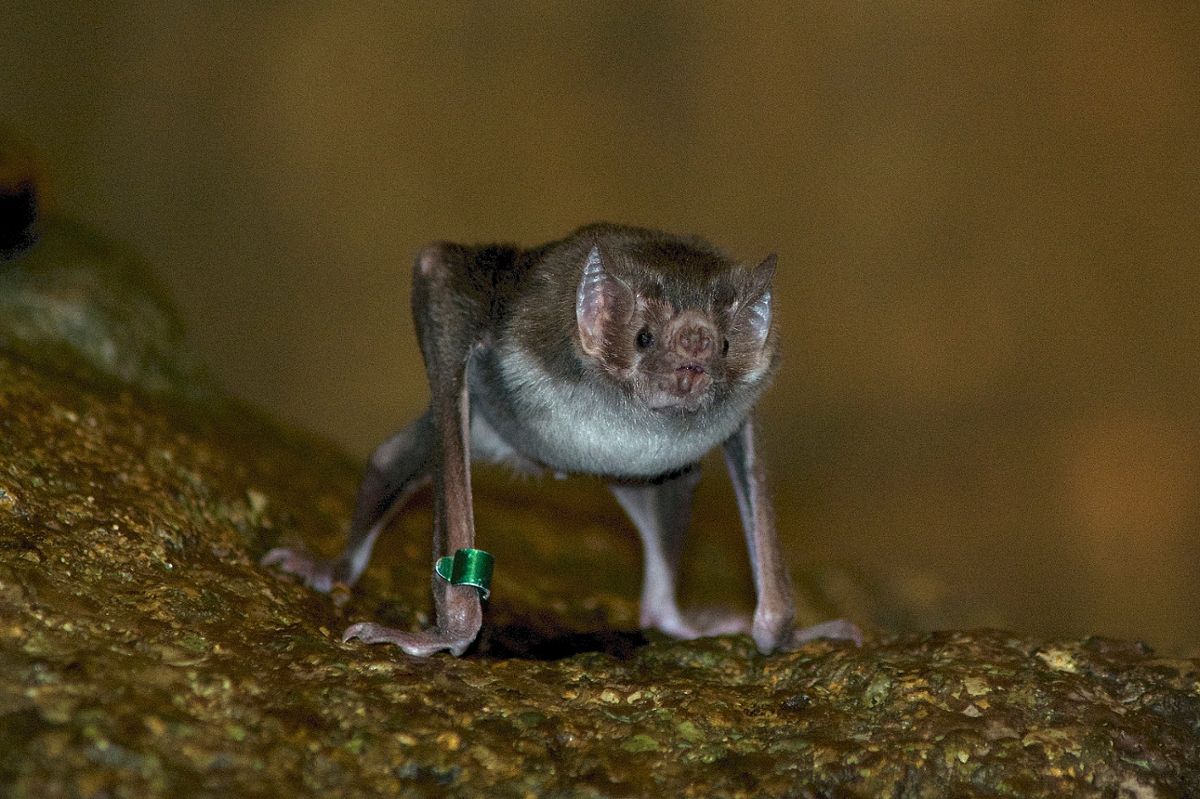D: I don’t know if being out here at night is such a good idea, Yaël.
Y: Why Don, what’re you afraid of? Monsters? Vampires?
D: Not vampires, but definitely vampire bats. I prefer to stay out of the way of animals that want to nourish themselves on my blood.
Y: You know, blood isn’t all that nourishing—which is why it’s amazing that it’s the only thing vampire bats eat. Blood is almost eighty percent water, and barely contains any vitamins or nutrients. The nutrients it does have are mostly proteins, which are tough for the bats’ kidneys to metabolize. Plus, drinking blood exposes bats to a huge range of blood-born pathogens.
D: That sounds like a recipe for… severe nutrient deficiency and death.
Y: You’d think. Scientists took a look at their genome and the genome of their microbiome to find out exactly how they manage to survive. They compared the gut microbiome of vampire bats to those of insect, fruit, and meat eating bats, and found that vampire bats’ microbiomes are key to helping them cope with only eating blood. They have special genes in their guts that let them metabolize nitrogen-based waste material, such as urea, in blood. They also have tweaks in their DNA that help their kidneys cope with a high-protein diet, and genes that help them get the maximum use out of carbohydrates. Scientists also think that their microbiome might contain bacteria that help fight off pathogens.
D: Those are all pretty good adaptations, but I have a solution that’s even better.
Y: What’s that?
D: A diet that doesn’t include my blood.









